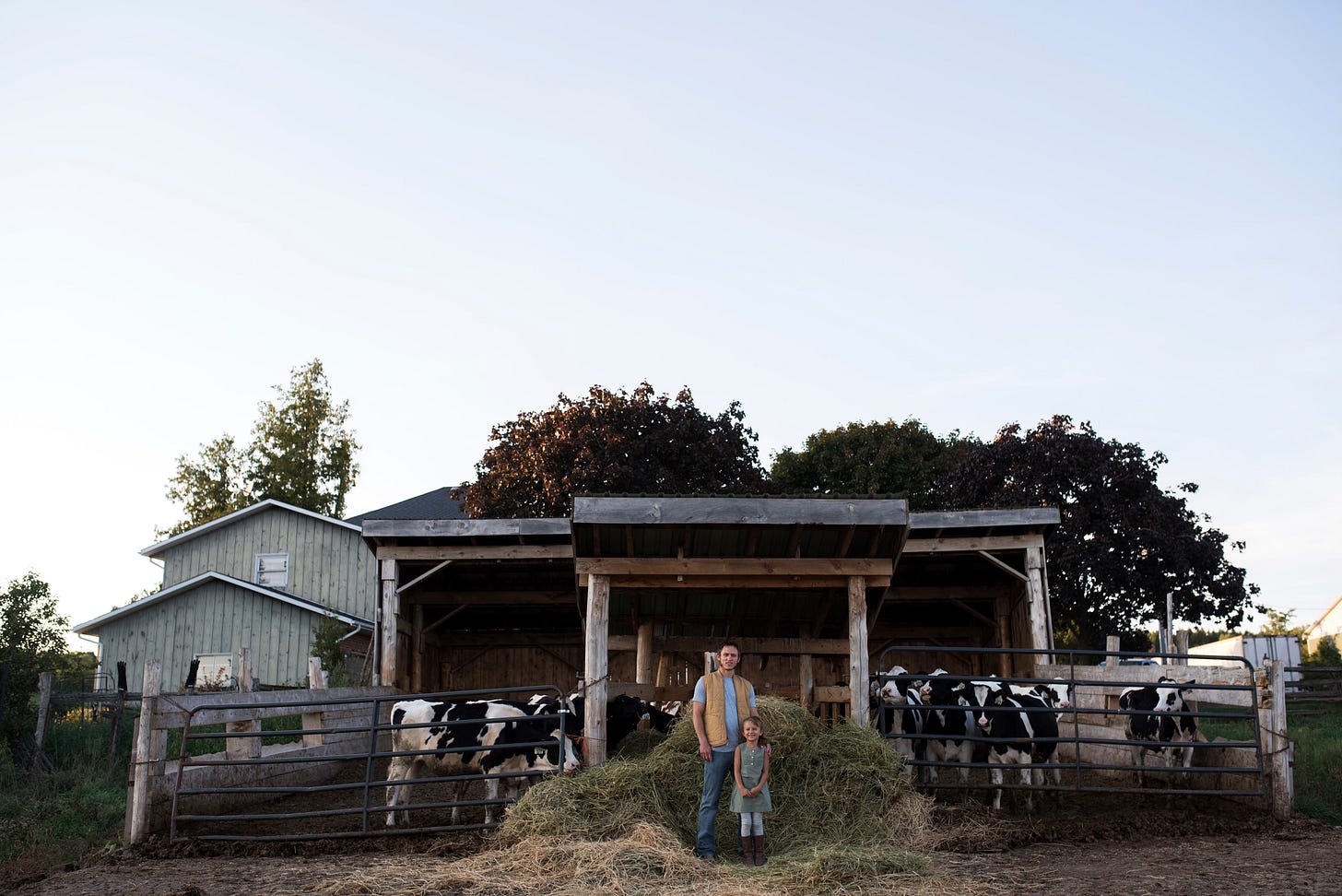Oregon’s War on Small Farmers Is Real — and It’s Time to Pay Attention
"They Are Throwing Food Away" Oregon Farms Shut Down En Masse
If you're looking for a war on farming, look no further than Oregon. Over the last few years, small family farms in the state have been squeezed by a relentless tide of bureaucracy, overregulation, and legal confusion — making it increasingly difficult for them to grow, sell, and survive.
Let’s be clear: Oregon hasn’t issued blanket shutdown orders for small farms. Instead, it has done something just as damaging — made it financially and legally impossible for many to continue operating.
The Water Crisis No One Talks About
In one of the most shocking developments, market gardeners in Oregon have been forced to throw out produce — not because of disease or overproduction, but because they’re legally restricted from selling crops irrigated with well water on land that lacks a formal water rights permit.
According to the Capital Press, small farmers confirmed they were forced to discard produce due to state-imposed water use restrictions (Capital Press, April 2024). This came after the Oregon Water Resources Department suddenly began enforcing a narrow interpretation of an outdated rule, claiming that commercial irrigation from domestic wells was illegal — a move that shocked small farmers across the state.
This enforcement directly contradicts the legal opinion of the Oregon Office of Legislative Counsel, which concluded the restrictions were likely an overreach (Read the opinion here).
The state’s position? If you grow and sell food, you’re a commercial operation — and your water is no longer yours to use unless you’ve paid for and secured water rights. Even though residential users can use up to 15,000 gallons per day, and many commercial businesses are allowed up to 5,000 gallons, these small farms were denied even 3,000 gallons to keep food growing.
Did you know?
Residents can use up to 15,000 gallons/day.
Commercial businesses can use 5,000 gallons/day.
Small farms? Denied even 3,000 gallons — and told to stop selling.
Legislative Whiplash: Bills That Hurt More Than Help
A step in the right direction:
There is some effort to correct course. House Bill 3372 a bipartisan proposal, would allow small farmers to use up to 3,000 gallons of well water daily for commercial crop irrigation without needing a full water rights permit (Oregon State Legislature, HB 3372). While this is a step in the right direction, it still offers less water access than commercial businesses and homeowners already enjoy — and doesn’t go far enough to undo the damage done.
Meanwhile, Senate Bill 1154 proposes new water restrictions that could expand bureaucratic power over well users in groundwater-limited areas. And House Bill 3419 would require every well user in Oregon to install water monitoring devices, adding costs and surveillance burdens to already-stretched farmers (HB 3419 overview).
These bills don’t reflect a desire to protect resources — they reflect a systemic disregard for the realities of rural life and the food producers who sustain it.
Bills making it worse:
Senate Bill 1154 – Expands state authority to limit well water use.
House Bill 3419 – Requires every well user to install water-monitoring equipment at their own cost.
Losing Farms — And the Freedom to Farm
Between 2017 and 2022, Oregon lost nearly 2,000 family farms (USDA Census of Agriculture, 2022). This loss isn’t just a statistic — it’s a cultural and economic crisis.
Farming in Oregon is no longer about innovation and stewardship. It’s about survival.
New legislation like House Bill 2548 threatens to impose industry-wide mandates on wages, benefits, and employment conditions, eliminating “at-will” employment on farms and placing sweeping control in the hands of unelected boards. Another bill, House Bill 4002, mandates overtime pay for seasonal workers — a well-intentioned law that, in practice, results in fewer hours and fewer jobs for those workers during peak harvest periods (Oregon Capital Chronicle).
These laws pile regulation on top of regulation, burdening the very people who are working to keep food local, safe, and accessible.
New legislation threatens to make things even harder:
House Bill 2548 – Establishes a state-appointed board with the power to dictate wages, benefits, and farm employment conditions. It would also eliminate "at-will" employment on farms.
House Bill 4002 – Requires overtime pay for farmworkers, a well-meaning law that leads to fewer hours and fewer jobs.
These bills stack regulation on top of regulation — suffocating the very people trying to grow our food.
Defending the Right to Farm
At Meet My Neighbor Productions, we don’t just document these issues — we respond to them. From providing relief to flood-impacted farmers to filming eye-opening documentaries, we’re reconnecting communities with the farms that feed them.
Watch our work on YouTube: Yanasa TV
Get the Defend the Right to Farm hat: YanasaTrading.com
What You Can Do
Support House Bill 3372 — and urge lawmakers to expand it.
Oppose HB 2548 and HB 3419 — protect the rights of family farms.
Shop local. Support rural. Share this story.
Donate to Meet My Neighbor Productions or grab a hat at YanasaTrading.com to support MMNP’s mission.
When you lose your small farms, you lose food freedom.
You lose your connection to the land.
You lose the people who care for both.
It’s time to stop the war on farming — before there’s no one left to fight for it.




